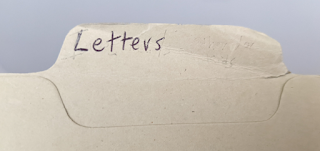When I first started my administrative/post-doc job at the East Asian Institute of Columbia University in August 1989, I read about this new form of communication, electronic mail, and suggested to my boss that we should get it for our research project. Email turned out to be very helpful for planning a trip to Taiwan that December to study an election, because we could communicate very quickly with our colleagues in Taiwan on the itinerary and arrangements.
When I contacted the Information Technology people at Columbia that August to set up our email account, email was brand new. They told me that we had to put money into a non-refundable account in advance to cover the costs of email. I asked them how much it would cost per message, or per byte, and they said they did not know, so we initially put only $100 in the email account, and we thought we'd see about topping it up later, depending on how much it cost. Keep in mind that email in those days was not user-friendly; we had to learn all sorts of UNIX commands, and it only worked by logging into the mainframe computer from my office. But it was fast; because of the time-zone differences with Taiwan, we would get a reply overnight.
We were never approached by the Information Technology Dept. to top up our account. At the end of the year, I checked our budget to see how much we had spent: only $0.79. (Unfortunately, the Information Technology Dept. kept the remaining $99.21). For the next year, Columbia decided it was costing more to collect the money than it was worth, so email was free.
That was 1990. In my Letters folder, I found a September 1993 letter from the Assistant Director of the East Asian Institute at the time. She thanks me for mailing her some receipts from Hong Kong, then adds:
I have resisted e-mail so far. I know that people love it, and it's convenient and cheap, but, but, but, people already have so many ways to get me. As it stands, there is phone mail, and regular mail, and people coming through the door at all hours of night and day, and messages, and, and, and. But I feel myself breaking down, because [the director], too, has been pestering me about getting it. His latest not very subtle message was that he would teach me how to use it.
Till then, snails will be my model.
Thanks for writing.
There are only a few more letters (from other people) in my folder. And then, the world shifted to email, and the folder stopped growing. It is interesting that four years after I was among the first at Columbia to use email, she was still under the impression that this was a new and optional technology. And by about a year later, everyone was on email. The change was gradual and it is hard to remember when it happened. This file shows the timing of that change, at least for my academic circle.

No comments:
Post a Comment